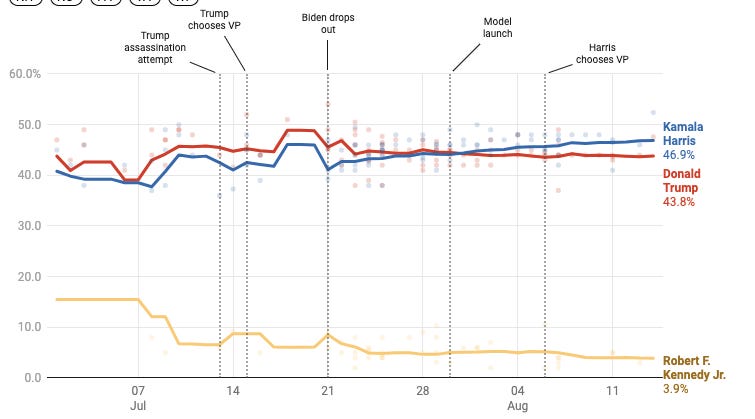I know that I said I wouldn’t be writing about polling until after the DNC when things were more settled, but considering that I’m seeing many of my readers have anxiety, panic, and grief, I have no choice but to write a short piece to tell you all to calm down. And if you’re one of the few with my phone number, stop texting me; I will refer you to this substack post.
“I got a call from a pollster,” my best friend, a middle school math teacher, told me over the weekend.
“Oh yeah, what did they ask?” I replied.
“I’m not going to talk to them. My union is liberal; they might find out what I said, so I hung up,” he said. My friend is a pro-choice Republican, a middle-income millennial, and a parent, an important demographic that pollsters would love to hear from, but he absolutely refuses to answer them.
I tell you this quick story to explain response bias in polling. People who want to answer polls do, and those who don’t avoid it.
Pollsters typically ask respondents if anyone in their household works in politics or journalism; if they do, they are no longer asked to continue with the poll. I know this, and I say no when they ask if anyone works in politics. Why? Because I really want to hear a poll and answer it.
This desire is especially strong among class divides. Those with a college degree or higher income, for whatever reason, really like to give their opinions to a pollster, and it explains some of the results we’ve seen in 2016 and 2020, as well as some early numbers we’re witnessing in this election.
Let’s look at the Rust Belt, specifically the all-important state of Pennsylvania.



